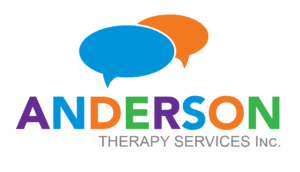What are Language Delays?
Early Language Delays
Early language delays refer to when a child’s language develops more slowly than their peers and they are not meeting the typical speech-language milestones. Children with speech-language delays are at greater risk for experiencing difficulties in the area of literacy. Fortunately, language delays can be identified early. Toddlers as young as 18 months who are not speaking (or using few words) may benefit from early identification and intervention. Parent training is a key method in language facilitation, as it is important to integrate various strategies throughout the child’s day.
Receptive Language Delays
Receptive language delays are when an individual has difficulty understanding language. Individuals with receptive language delays may demonstrate behavioural concerns or seem inattentive. Some examples may include difficulties with following directions, answering questions, or understanding stories.
Expressive Language Delays
Expressive language refers to the production of language, putting thoughts and ideas into spoken or written words. Expressive language delays may affect one or more of the following areas of language:
- Syntax – combining words into sentences or phrases, following grammatical rules
- Semantics – meaning of words
- Morphology – combining small units of language to form new words (e.g. sleep, sleeping, slept)
Social Language Skills
Social components of language are also known as pragmatic skills, which include:
- Maintaining eye-contact
- Taking turns during activities and in conversation (e.g. raising hand, not interrupting)
- Requesting, commenting, and sharing information appropriately
- Maintaining the topic of conversation
- Understanding and using gestures and facial expressions
What are Literacy Delays?
Literacy is an essential skill for learning. There are many skills a child must acquire before they are able to read and write.
Some of these skills include:
- Book Awareness (e.g. how to hold a book, when to turn the page, reading from left to right)
- Phonological Awareness (e.g. syllables, rhyming, identifying beginning sounds)
- Letter-sound correspondence (e.g. letter S says “sss”)
- Decoding (i.e. sounding words out)
- Encoding (i.e. spelling and writing)
- Sight Word Recognition
Following a comprehensive and detailed assessment, the Anderson Therapy Team will use engaging and interactive activities to help your child become strong, confident readers.
Are Difficulties Holding You Back?
Let us know how we can help.
The clinicians at Anderson Therapy Services will try their best to work with your schedule and offer you therapy services at your convenience. To learn more about our services, contact us at (289) 238-8598 or at info@andersontherapy.ca
We provide therapy services at our Dundas and Burlington locations to children, adults and seniors across the Greater Hamilton, Burlington, Oakville, Mississauga, and communities in Northern Ontario and Quebec.

